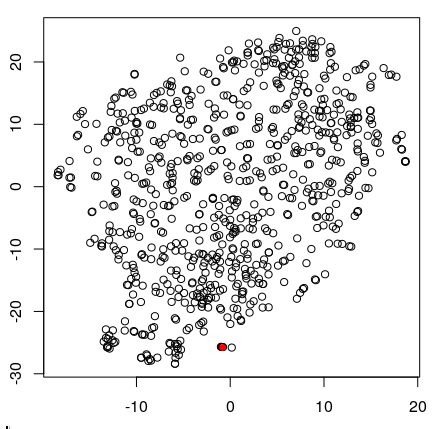
For a few years I did not attempt any serious task on the Amazon cloud. It
took me a bit of time to get back my automatisms and adapt myself to the
changes. In particular, the cheapest instances,
t2.nano, are only
accessible via virtual private clouds (VPC), and it was a bit difficult for
me to find how to create a simple one. Perhaps this is because all AWS
accounts created after March 18, 2013, automatically have a default VPC, and
everybody else who needed their own simple VPC have created it a long time
ago already. In the end, this was not complicated at all. This is probably
why I could not find a tutorial.
In brief, one needs first to create a VPC. If it is just for spawning an
instance from time to time, the IP range does not matter much. Default VPCs
are using
172.31.0.0/16, so let's do the same.
CIDR_BLOCK=172.31.0.0/16
aws ec2 create-vpc --cidr-block $CIDR_BLOCK
In the command's output, there is the VPC's identifier, that I paste by hand
in a variable called
VPC. The same pattern will be repeated for each
command creating something. One can also find the VPC's identifier with the
command
aws ec2 describe-vpcs.
VPC=vpc-XXXXXXXX
Then, create a subnet. Again, no need for complications, in our simple case
one can give the full IP range. I cut and paste the returned identifier in
the variable
SUBNET. In order that the instances receive a public IP
address like in default VPCs and like in the usual behaviour of the VPC-less
Cloud, one needs to set the attribute
MapPublicIpOnLaunch.
aws ec2 create-subnet --vpc-id $VPC --cidr-block $CIDR_BLOCK
SUBNET=subnet-XXXXXXXX
aws ec2 modify-subnet-attribute --subnet-id $SUBNET --map-public-ip-on-launch
Then, create a gateway (paste the identifier in
GATEWAY) and attach it to
the VPC.
aws ec2 create-internet-gateway
GATEWAY=igw-XXXXXXXX
aws ec2 attach-internet-gateway --internet-gateway-id $GATEWAY --vpc-id $VPC
A routing table was created automatically, and one can find its identifier
via the command
describe-route-tables. Then, create a default route to
the gateway.
aws ec2 describe-route-tables
ROUTETABLE=rtb-XXXXXXXX
aws ec2 create-route --route-table-id $ROUTETABLE --destination-cidr-block 0.0.0.0/0 --gateway-id $GATEWAY
Of course, if one does not open the traffic, no instance can be contacted
from outside... Here I open port 22 for SSH.
aws ec2 describe-security-groups
SECURITY_GROUP=sg-XXXXXXXX
aws ec2 authorize-security-group-ingress --group-id $SECURITY_GROUP --protocol tcp --port 22 --cidr 0.0.0.0/0
Other novelty, now Amazon distributes some
Free tools for the command line, that are more comprehensive than
euca2ools.
Next, I will try again the
Debian
Installer in the Cloud.
 Je ne me souviens plus de la derni re fois o j'ai utilis la commande
Je ne me souviens plus de la derni re fois o j'ai utilis la commande 